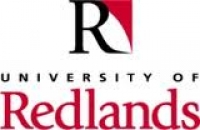






Candidates for the Bachelor of Science degree must complete, in addition to the seven required major courses, five other economics courses including ECON 300 Introduction to Econometrics and ECON 301 Mathematical Economics, and three additional elective economics courses. Because the B.S. degree requires nine specific economics courses, careful planning by the student is necessary. Students should begin to plan their course of study with their advisor early in their career. In addition, candidates must be computer literate and complete at least 16 credits in mathematics, which must include MATH 122 and at least one of the math courses listed below: * MATH 231 Introduction to Modeling * MATH 233 Introduction to Operations Research * MATH 235 Differential Equations * MATH 241 Linear Algebra The candidate may select any three economics electives to complete the degree requirements. If appropriate, a student may be allowed to substitute a mathematics course for one of the economics electives with departmental approval. All economics majors are urged to complement their studies in economics with courses in computer science, government, history, mathematics, philosophy, and sociology. A minor in any of these fields is strongly recommended. ACCT 210 Principles of Financial Accounting and Reporting and PHIL 130 Reasoning and Logic are strongly recommended. The department also encourages all majors to participate in one of the University’s excellent international study opportunities.
| Number | Duration |
|---|---|
| 3 | year |
Students graduating with a BA degree in Economics will: 1. Generate constructive analysis of real world issues using the theories of economics, including macroeconomic and microeconomic theories, economic history or history of economic thought, or theories of economic institutions. 2. Efficiently locate, effectively utilize, and critically interpret economic information and data using statistical methods or economic and institutional theories. 3. Produce a constructive assessment of a social problem by drawing upon relevant data and utilizing suitable economic theories. 4. Identify complex problems and arguments and analyze those using the theoretical tools and quantitative methods of economics. 5. Effectively communicate economic ideas, problems, and findings to both lay and professional audiences. 6) 6. Complete an independent research project demonstrating appropriate mastery of qualitative and statistical research methods in economics.